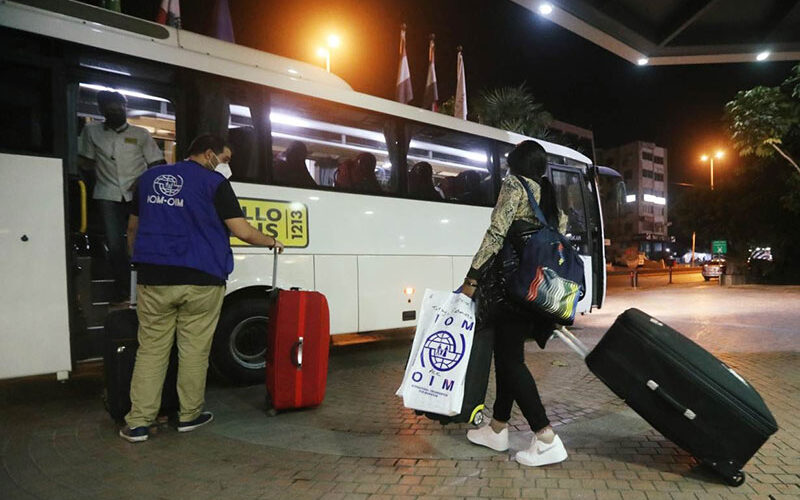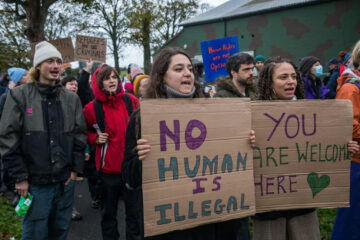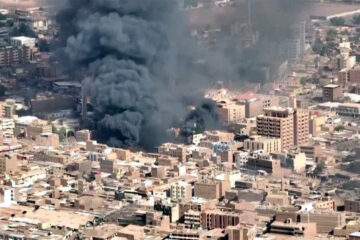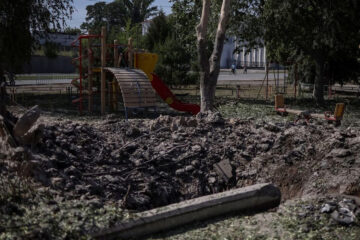ALAA KANAAN
CHANTING their national anthem in the departure hall of Beirut airport, a group of migrant workers prepared to return home and close a chapter on their time in Lebanon which drove some to despair.
The International Organization for Migration (IOM), which supports many domestic workers in Lebanon, says as many as 10,000 migrants have asked to be repatriated because their wages collapsed after the country plunged into a deep financial crisis a year ago.
Many employers stopped paying salaries in dollars and some foreign workers said they were leaving with their wages unpaid.
The numbers of those asking to go home increased further after the huge explosion which struck Beirut in August, the International Labour Organisation said.
The IOM’s Dima Haddad said UN agencies in Lebanon had found “shocking numbers” of vulnerable migrant workers. She said 50% of those they interviewed said they could not pay rent, of which 34% said they were borrowing money to cover basic needs.
“They treat us like slaves,” said a 25-year-old domestic worker heading home after what she said were months of hardship at the hands of her employers that led her in February to jump from the third floor of the house she worked in.
She survived but, without work and alone on the streets, she faced destitution as the coronavirus pandemic compounded Lebanon’s economic problems.
“After jumping … I thought I would die but God made it possible for me,” she said, recalling how she found help through other migrant workers.
“I am begging everybody, anyone not to step their feet in this country. It is really not easy,” she said from a hotel room in a Beirut suburb where she and other women where preparing to fly home.
She spoke on condition that she not be identified, and the IOM asked that her nationality not be specified, but most migrant domestic workers in Lebanon come from Africa and southeast Asia.
Another worker preparing to be repatriated said she came to Lebanon for secretarial work but found herself working as a maid, moved from one household to another by a local agent.
When she begged to be sent home she was told to complete her two-year contract first. Under Lebanon’s ‘kafala’ (sponsorship) regulations, which give employers the right to hold the passports of their domestic workers, she was trapped.
Many of the estimated 250,000 migrant domestic workers in Lebanon are excluded from protection under Lebanon’s labour laws, leaving them vulnerable to abuse, rights groups say.
Human Rights Watch (HRW) describes the kafala system as a restrictive regime which “ties migrant workers’ legal residency to their employer”.
Amendments to the system last month provide guarantees for workers including 48-hour work weeks, a rest day, overtime payment, as well as sick and annual leaves. Workers can now terminate their contracts without their employer’s consent.
HRW welcomed the reforms as a step towards protecting workers’ rights and abolishing the “kafala system” if they were accompanied by a stringent enforcement mechanism. The IOM said it was a positive move.
“But we must have practical steps to guarantee the execution of this decision so this contract does not remain just ink on paper,” Haddad said. – Thomson Reuters Foundation.













